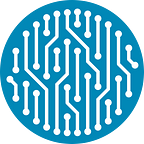Despite serving us well for the past two decades, Web 2.0 — the current iteration of the world wide web — comes with its own shortcomings. And due to widespread privacy and security concerns, we’re steadily entering a new digital era known as Web 3.0.
Web 3.0, also known as the Semantic Web, is the next phase of the internet’s evolution, promising to bring more user empowerment, openness, and privacy.
Web 3.0 applications aim to achieve a higher degree of security and interoperability by building decentralized infrastructure, which removes the need for central servers. Instead, Web 3.0 applications will be running on distributed blockchain and cloud networks.
Artificial intelligence (AI) is emerging as one of the fundamental building blocks of Web 3.0, promising to improve the user experience through better content recommendations and improved human-machine interactions.
Below we’ll explore the importance of AI as the cognitive layer of Web 3.0.
Putting the “Semantics” Into the Semantic Web
Web 3.0 envisions a digital realm where machines can communicate directly with other machines and users. Yet, this requires machines to understand digital content in the first place. This is why artificial intelligence will become the cognitive layer of Web 3.0 by providing deep learning algorithms and analytic capabilities to make machines “understand” online content.
In essence, deep learning algorithms will train artificial intelligence to recognize different types of content and attribute meaning to them. This way, search engines won’t just recommend the most popular type of content but have a basic understanding of it to help improve the overall user experience.
Natural language processing (NLP) — which is among the most fascinating subfields of linguistics and artificial intelligence — will also play a prominent role in the semantic web by enabling AI algorithms to analyze and gradually understand online communication.
NLP’s implementation in the Semantic Web is crucial for creating a safer online environment and advancing some of its most promising elements, such as AI-powered chatbots to automate customer support processes or better content indexing algorithms.
Below we’ll explore some of the user-oriented benefits of applying artificial intelligence as the cognitive layer of Web3.0.
How AI Will Redefine the User Experience in Web 3.0
1.AI Will Generate More Personalized Recommendations
AI-powered recommendation engines are already being employed in popular Web 2.0 applications like Amazon and Netflix. The Netflix Recommendation Engine (NRE)’s suggestions are already behind 80% of the viewer activity on the streaming platform.
Artificial intelligence algorithms will likely be at the core of Web 3.0 recommendation engines, thanks to their ability to analyze large amounts of user data and create predictive models on an individual level.
AI-based recommendation engines will result in better navigability and user experience, thanks to their ability to truly “understand” user preferences and provide more personalized recommendations.
2. Smarter dApps and Intelligent NFTs
Web 3.0 will likely introduce smarter decentralized applications (dApps) with more advanced real-world utility as blockchain developers integrate AI and machine learning algorithms.
A fascinating early example is Alethea AI’s Alice — the first non-fungible token (NFT) with self-learning capabilities that changes how it interfaces with people as it learns from every new interaction. As the first intelligent NFT (iNFT), Alice comes with her own personality and is capable of having exhaustive conversations with internet users and learning from them in the process.
As AI algorithms advance, the next generation of dApps and NFTs will likely benefit from their efficacy, as decentralized applications gain better data management and analysis capabilities, while the next generation of NFTs will come with human-like behavior.
3. More Relevant Advertising
While social media giants and marketing companies are already collecting our browsing data to offer more relevant ads, this hasn’t worked out in the internet user’s best interest.
First, internet users have freely signed off their data to profiteering third parties without realizing its true value. Secondly, the intrusive data-mining practices employed by these companies have raised widespread privacy concerns among internet users.
The decentralized ethos of Web 3.0 aims to bring more user empowerment by giving back people control of their data — which can be optionally shared with advertisers, who pay the users directly.
By applying AI algorithms, advertising companies will be able to analyze larger amounts of data and account for more factors when personalizing user ads. As a result, Web 3.0 users will receive more relevant ads, while AI algorithms will continuously adapt to each individual’s preferences.
4. Increased Content Safety
Content safety is perhaps among the most challenging issues of Web 2.0, as human content safety indexing often results in inconsistent metadata due to our uniquely-subjective perspectives.
Artificial intelligence removes the bias of the human mind, which can result in more consistent and reliable content metadata.
Video content safety is of special importance, as the amount of videos being uploaded daily far exceeds the capability of human oversight. Yet, thanks to the massive scalability of AI algorithms, artificial intelligence is poised to revolutionize content safety in Web 3.0.
At AIWORK, we recognize the dangers arising from inconsistent video metadata. We’ve developed a blockchain-based platform that combines AI algorithms and a network of human experts to generate and enhance online video metadata.
While we’re advancing the field of AI for Web 3.0 adoption, we’re making video content suitability our utmost priority, with the users’ needs at the forefront.
